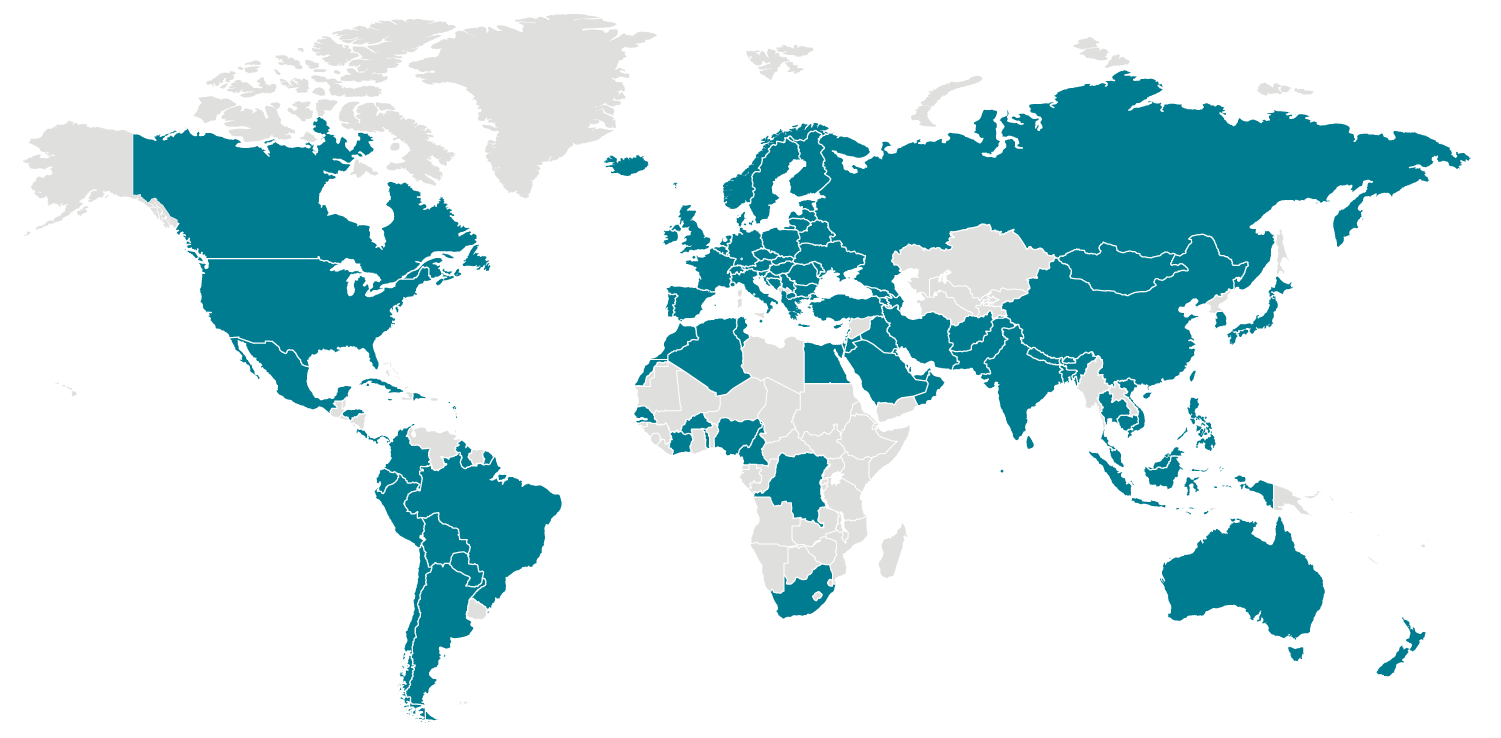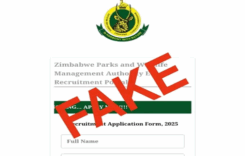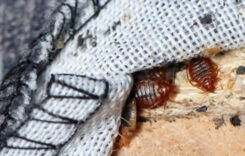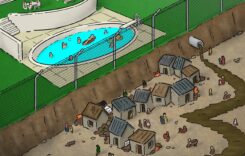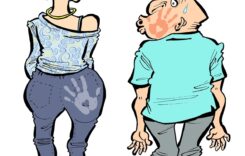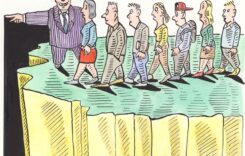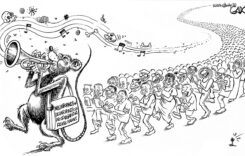A global map of confirmed COVID-19 cases as of March 11, 2020. Credit: The US Centres for Disease Control and Prevention (CDC)
Coronavirus responses in five countries with significant Zimbabwean populations:
By Nevanji Madanhire
South Africa
Number of cases and quarantine measures in place
There were 17 confirmed cases of coronavirus in South Africa as of Thursday, March 12.
The country recorded its first local transmission case after a man tested positive without travelling abroad.
An urgent Cabinet meeting would be convened on Sunday, 15 March, to discuss a response on how to contain the pandemic, according to Minister in the Presidency Jackson Mthembu.
The strategy so far is self-isolation of people infected with the virus and those they have been in contact with.
By March 12, more than 100 people were in quarantine.
A tracer team with epidemiologists and clinicians is on alert to trace those who have been in contact with affected people to encourage them to self-isolate.
Travel restrictions
So far the South African government has not announced any plans to restrict movement or stop public gatherings.
The Department of Health has urged citizens, companies and all authorities to take the necessary precautions to limit potential exposure.
However, workplaces or social gatherings are already implementing measures to reduce potential exposure to the virus. South African banks, where millions of customers make their way to branches to transact – often in close proximity, and interacting with bank employees have taken the lead in this regard. Many banks and universities have disabled biometric systems and issued alcohol swipes to all branches to clean surfaces after use by each customer. Bank employees across the board have been restricted from travelling outside the country.
The banks have vowed to follow World Health Organisation guidelines relating to cleanliness and hygiene practices. Bank workers can also work from anywhere including from home. — https://businesstech.co.za/
Public information dissemination and problems of fake news
There are daily briefings from the health department, which confirm all the facts and figures relating to coronavirus. Since the beginning of March, both President Cyril Ramaphosa and Health Minister Zweli Mkhize have implored South Africans to avoid sharing fake news.
Yet false information abounds shared through social media. But fact-finding group AfricaCheck has been working to fact-check information and disseminate the fact to the public. Some of the fake news that had spread in South Africa was that a cure had been found in Ghana and that some detergents such as bleach and Dettol treated Covid-19. The truth as disseminated through official sources is that there is currently no vaccine available to treat the illness — https://www.thesouthafrican.com/
United Kingdom
Number of cases and quarantine measures in place
Confirmed coronavirus cases in the UK reached 460 on Tuesday 11 March 2020.
A total of eight people have died so far but Health Secretary Matt Hancock said the peak of the UK outbreak was expected “in a matter of a couple of months”.
The UK remained in the “containment” stage of its response to the virus but Prime Minister Boris Johnson was expected to announce a switch to tactics aimed at delaying the spread of the virus rather than containing it.
The delay phase will see a mixture of the same advice given out, such as encouraging the washing of hands regularly, while also introducing social restriction measures to slow the spread of the virus. The end goal of the delay phase is to slow the rate of coronavirus being contracted and allow the National Health Service (NHS) to clear the annual winter pressure it faces. It would also provide a buffer to allow a possible vaccine to be found.
Travel restrictions
The Foreign Office has warned Britons to avoid large parts of northern Italy under a coronavirus quarantine, unless their journey is essential. Those travelling from locked-down areas have also been advised to self-isolate if they returned to the UK in the last 14 days – even if they have shown no symptoms.
Travellers from the rest of Italy are only told to self-isolate and to call emergency health services if they have a cough, fever or shortness of breath.
British nationals are still able to depart Italy without restriction, but some airlines – including easyJet and British Airways – have cancelled several flights to and from affected areas. Oliver Dowden, the culture secretary, told BBC Radio 5 Live “enhanced measures” were in place to screen passengers from Italy – but the only one he identified was training airline staff to spot the symptoms of Covid-19. Public Health England said passengers on flights from northern Italy are also issued with information about symptoms and necessary actions to take.
Public information dissemination and problems of ‘fake news’
The World Health Organization (WHO) is urging tech companies to take tougher action to battle fake news on the coronavirus. The push comes as a representative from the WHO travelled to Silicon Valley to speak directly to tech firms about the spread of false information.
The WHO has labelled the spread of fake news on the outbreak an “infodemic”. Andrew Pattison, digital business solutions manager, for the WHO said false information was “spreading faster than the virus”. Bogus claims that the virus was spread by eating bat soup or could be cured by garlic have already swept the web. Social media firms have already taken some steps to remove false claims and promote accurate information. Facebook, Twitter, Youtube and TikTok are already directing users that search for coronavirus on their sites to the WHO or local health organisations. People searching on Google’s search engines, meanwhile, are shown news and safety tips. Facebook has said it will use its existing network of third-party fact-checkers to debunk false claims. — BBC
The United States of America
Number of cases and quarantine measures in place
There are 1,135 confirmed cases of the virus across the US, with 38 deaths so far (March 12).
The director of the National Institute of Allergy and Infectious Diseases, Anthony Fauci, has warned that the outbreak in the US is going to get worse.
Containment measures currently in place include quarantine which has been recommended for persons believed to have been exposed to the virus but are not symptomatic; isolation for persons known or believed to be infected with the disease; and social distancing defined as “remaining out of congregate settings, avoiding mass gatherings and maintaining distance (approximately 6 feet/ 2 m) from others when possible”.
People under quarantine for possible COVID-19 might be asked to stay home and avoid going out in public for a period of 14 days.
Travel restrictions
President Donald Trump issued a Presidential Proclamation on March 11 with new rules that will go into effect midnight on Friday 13 March 2020.
Sweeping new travel restrictions on Europe were put in place but these do not apply to UK and Ireland and other European countries not in the EU; only to travelers from the 26 countries in the Schengen border-free travel area were barred.
The ban applied to anyone who had been in the EU’s Schengen border-free area in the 14 days before their arrival in the US and will apply for 30 days. Restrictions would not apply to legal permanent residents, or to most immediate family members of US citizens.
Public information dissemination and problems of ‘fake news’
Vice President Mike Pence has been appointed to lead the effort to contain and fight the spread of the virus but often his statements have been contradicted by the president’s. For example, Pence said the country didn’t have enough testing kits but Trump said anyone who needed the test would get it. There has also been an epidemic of fake news dubbed an infodemic.
Fake news in the US abounds driven mostly by xenophobia against people from the East.
Misinformation is rampant on social media and the World Health Organization Director-General has urged caution, stating that “we’re not just fighting an epidemic; we’re fighting an infodemic.”
People’s Republic of China
Number of cases and quarantine measures in place
China has seen 80,754 confirmed cases, 3,136 of whom have died. China recorded its lowest number of infections, just 19 on Tuesday 10 March 2020, all in Wuhan apart from two who had arrived from overseas. Wuhan and its province, Hubei, have been locked down in order to prevent the spread of the disease. Whole communities were put into self-quarantine through massive lockdowns and electronic surveillance measures. The lockdown of Wuhan and nearby cities in Hubei province put at least 50 million people under a mandatory quarantine since 23 January effectively preventing further exportation of infected individuals to the rest of the country. Chinese president Xi visited Hubei this week after which people in vital industries were told to go back to work. Shortly after his visit, state media confirmed that all 14 of the temporary hospitals in China had now been closed. The epidemic in China appears to have peaked in late January. Aggressive “social distancing” measures implemented in the entire country included canceling sporting events and shutting theatres. Schools extended breaks that began in mid-January for the Lunar New Year. Many businesses closed shop. Anyone who went outdoors had to wear a mask.
Travel restrictions
Two widely used mobile phone apps, AliPay and WeChat helped enforce travel restrictions, because they allow the government to keep track of people’s movements and even stop people with confirmed infections from traveling. “Every person has sort of a traffic light system,” says mission member Gabriel Leung, dean of the Li Ka Shing Faculty of Medicine at the University of Hong Kong. Colour codes on mobile phones—in which green, yellow, or red designate a person’s health status—let guards at train stations and other checkpoints know who to let through.
As the number of infections rapidly decreases, there are signs that life in China is slowly returning to normal. In Qinghai province, the first batch of 144 senior schools and secondary vocational schools reopened on Monday. On Monday, state media said Tianhe Airport in Wuhan was preparing to reopen but no official date had been set. Disneyland Shanghai says it has partially reopened. The main theme park is still closed but the shops and restaurants have reopened.
Public information dissemination and problems of ‘fake news’
China’s tightly controlled political system ensures public compliance with extreme measures through its use of social control and intrusive surveillance.
Internet censorship, surveillance and the Great Firewall of China blocking social websites like Gmail, Google, YouTube, Facebook, Instagram and VPN service providers limits sources of information and disinformation.
China is the world’s biggest social media market, but with access to websites such as Twitter, Facebook and YouTube blocked in the country, most people can only use domestic social media sites such as Weibo, Renren and YouKu. – BBC/www.sciencemag.org/
Australia
Number of cases and quarantine measures in place
There are now 128 cases of coronavirus across Australia as at 12 March.
Three Australians have died so far.
Health authorities advise if a person develops a fever, cough, sore throat or shortness of breath within 14 days of travel to an affected area, they should seek medical attention. The rapid global spread of the disease, which is now in 105 countries, means that people should contact their doctor if they become unwell after any overseas travel. People who are unwell and have recently been overseas are advised to contact their GP or, for more serious illness, attend hospital. In both cases people are advised to phone ahead and tell them they suspect they may have the coronavirus.
Some hospitals in major cities have set up fever clinics. Testing of people who have recently travelled overseas is expected to halt the progress of the infection. Many of the cases confirmed in recent days were discovered as a result of tracing the contacts of people who have recently been overseas. Persons returning to Australia from Iran, China or South Korea need to self-isolate for 14 days on arrival, even if they don’t feel unwell.
The federal health minister, Greg Hunt, said that if anyone has been exposed to Covid-19 or believes they have been exposed, they should self-isolate or “if in doubt, get yourself tested”.
Travel restrictions
The Federal Government has extended a travel ban for travellers from China, Iran, Italy and South Korea for another week. The Department of Foreign Affairs and Trade has raised the travel advice for Italy, Iran, Japan, South Korea, Mainland China and Mongolia. The extension means foreign nationals who have been in any of the four nations affected are not allowed into Australia for 14 days from the time they left those countries. Australian citizens and permanent residents travelling from those countries are still able to enter Australia, but must self-isolate for a fortnight after returning home.
Public information dissemination and problems of fake news
Australian doctors and patients complain of confusing processes.
Conflicting advice, a lack of testing kits and delays on hotlines are testing the health system. Doctors and patients have criticised the “confusing” and haphazard process for accessing tests for the coronavirus, even as health authorities vowed to improve communication in the face of an ever-increasing number of confirmed cases in Australia.
Federal health minister Greg Hunt ramped up the government’s voice on Sunday 8 March, telling people they should get tested for the virus if they had flu-like symptoms. But doctors say that message has threatened to inundate a health system grappling with equipment shortages while it comes to grips with an escalating public health emergency, while some patients say the process for accessing tests remains confusing. The government is operating a 24-hour coronavirus hotline that can provide information. – Guardian-UK-news.com.au
Do you want to use our content? Click Here


